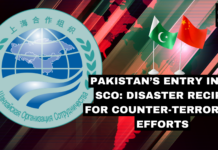The Financial Action Task Force (FATF) on Thursday retained Pakistan in its grey list and urged the country to do more to investigate and prosecute senior leaders and commanders of UN-designated terror groups involved in terror financing.
FATF president Marcus Pleyer said after a three-day plenary meeting of the multilateral watchdog that Jordan, Mali and Turkey had been added to the list of countries under increased monitoring or grey list because of serious issues in their regimes to counter money laundering and terror financing.
“Pakistan remains under increased monitoring,” Pleyer told an online news briefing. “Pakistan has taken a number of important steps but needs to further demonstrate that investigations and prosecutions are being pursued against the senior leadership of UN-designated terror groups,” he said.
Pakistan was added to the grey list in mid-2018 and given a 27-point action plan by FATF to control money laundering and terror financing. In June this year, FATF asked Pakistan to implement another seven-point action plan to address serious deficiencies related to money laundering.
In Thursday’s briefing, the FATF President insisted Pakistan must deliver on the sole remaining item in the 2018 action plan by demonstrating that its investigations and prosecutions are targeting senior leaders and commanders of UN-designated groups.
FATF said in a statement that Pakistan had made significant progress in addressing its “strategic counter-terrorist financing-related deficiencies”.
The statement added: “Pakistan should continue to work to address its other strategically important AML/CFT deficiencies, namely by: (1) providing evidence that it actively seeks to enhance the impact of sanctions beyond its jurisdiction by nominating additional individuals and entities for designation at the UN; and (2) demonstrating an increase in ML investigations and prosecutions and that proceeds of crime continue to be restrained and confiscated in line with Pakistan’s risk profile, including working with foreign counterparts to trace, freeze, and confiscate assets.”
The FATF is expected to review Pakistan’s performance on its recommendations during the next plenary and working group meetings between February 27 and March 4, 2022.
